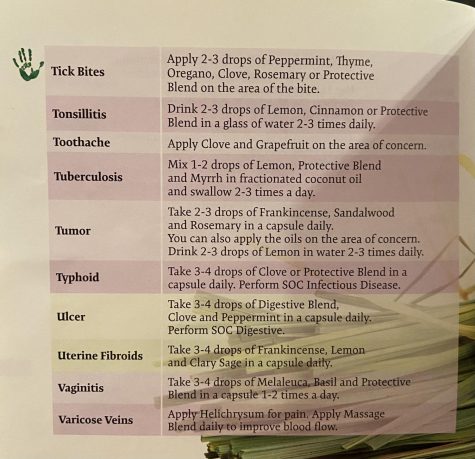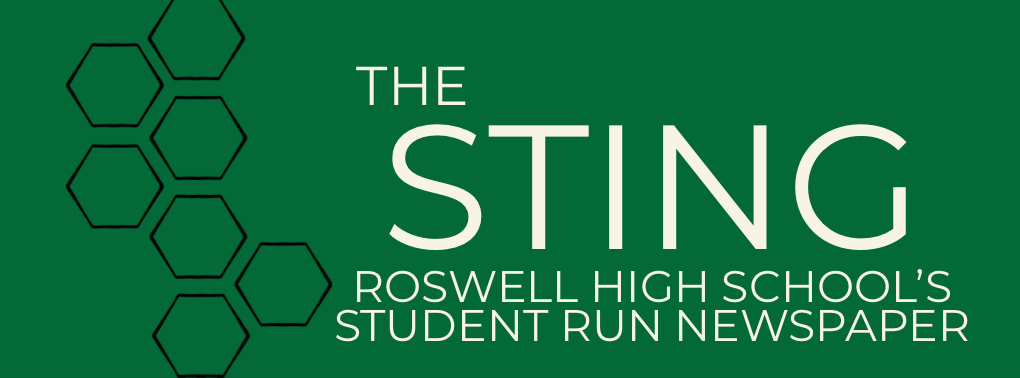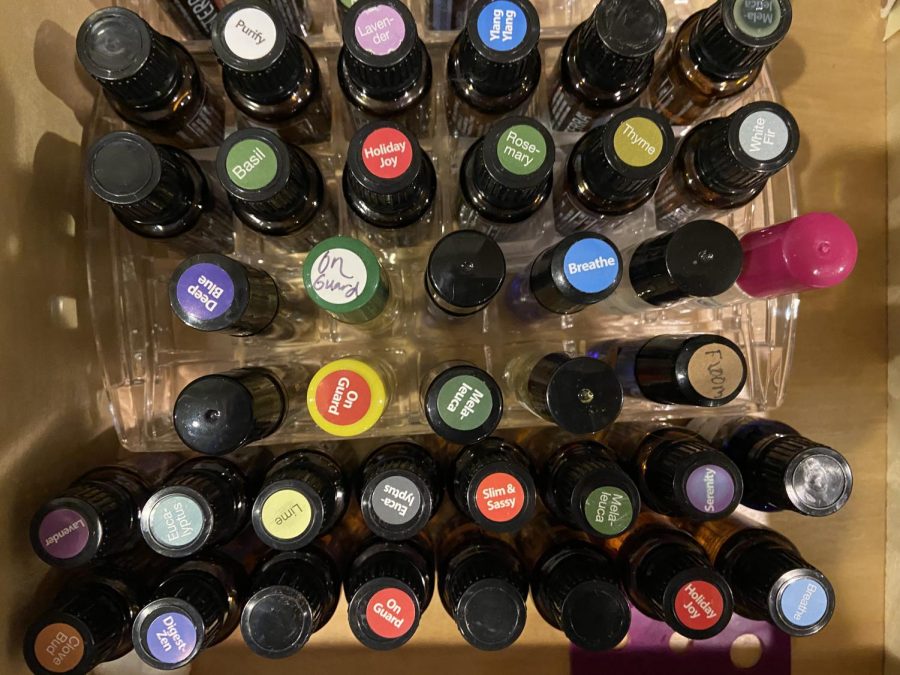Essential Oils: Medicine or Myth?
There are more blends of essential oils than anyone could use in a week! They all have their special purposes and uses. One of their most significant healing powers may just be the ability to feel as if they are helping, to soothe the mind’s worries. (Credit: Claire Mulkey)
December 14, 2021
Essential oils have grown in popularity in the last decade, catalyzed by multi-level marketing companies catering to suburban moms and all-natural influencers, but are they backed by the science community? Essential oils are sourced from plants, whether that is roots, leaves, or flowers. Their healing powers are accredited to aromatherapy, which is when the aroma of the essential oils are used for physical and mental benefits. Scientific American reports that in the United States, essential oils formed a billion dollar industry in 2019, and are projected to be an $11 billion industry by the end of 2022 (Do Essential Oils Work? Here’s What Science Says). Clearly, America is buying into aromatherapy. However, some scientists have reservations about essential oils’ actual medicinal properties.
Johns Hopkins has run studies on essential oils and found that on certain types of bacteria, they are very effective. As a whole, however, the university has decided that “there’s not enough research to determine their effectiveness in human health” (Aromatherapy: Do Essential Oils Really Work?). The National Institute of Health gathers a summary of all essential oils-related studies and found the results to be “inconclusive.” Ohio State University’s Wexner Medical Center published an article saying that essential oils have not been studied enough yet to hold any scientific backing (How and why to use essential oils | Ohio State Medical Center). So why do people still use them to treat medical problems?
For one, essential oils are some of the earliest forms of treatment used by man. Many believe that the ancient Egyptians used them as their own form of healing. Others believe frankincense and myrrh were the gifts brought by the Wise Men of the Bible. Rosemary, lemon, oregano, and ylang-ylang are some of the oldest oils used by groups before 1 A.D (Looking at Ancient Essential Oils From Around The World). Essential oils are not new to humans, just to the experimental and laboratory communities.
Another reason is that even if they do not cure diseases, they still smell good and can produce a sense of calm and cleanliness. Diffusers have become very popular, spreading the aroma of essential oils across entire homes and classrooms. Many Roswell students, teachers, and parents use essential oils, whether applying them directly on the body or using aromatherapy. Senior Rachel Stone says when she is using her diffuser in her room, she is “more likely to be calm.” Many people have diffusers as a way to create a certain aesthetic of relaxation and organization. Others use them when they have cold symptoms, like sophomore Kelsey Wiggins, who says peppermint essential oil helps clear her sinuses.
I myself have found essential oils helpful when sick or dealing with stress. doTERRA, one of the many brands that sells the oils, carries blends of oils, each meant for a specific purpose. For example, the DigestZen blend combines extract from anise fruit, peppermint plants, ginger roots, caraway seeds, coriander seeds, tarragon plants, and fennel seeds to help aleve stomach indigestion and pain. For those with a mistrust of long, complicated scientific names on the backs of nearly all household products, the all-natural ingredients of the essential oils can be refreshing. I especially enjoy the On Guard blend, which helps protect the immune system with a powerful solution of wild orange, clove bud, cinnamon leaf and bark, eucalyptus, and rosemary. I know, however, that the oils have their limitations. If I believe I am getting sick, I will take more vitamins, wash my hands more often, stay out of the cold, and drink lots of fluids, in addition to applying On Guard to my neck and temples. If I do end up getting sick, medicine like Motrin or Tylenol is my first course of action. After that, I may use certain essential oils to lessen the symptoms of whatever sickness I’m dealing with. Peppermint may soothe a headache, lavender helps to sleep, and eucalyptus can relieve stress.
However, not everyone agrees with the use of essential oils. Sophomore Emily Buck says she is fine with other people using them, but she does not believe in any related medical benefits. Others have a more extreme stance, like senior Ryan Buckley, who believes that the conversation surrounding essential oils is “dangerous and toxic.” Buckley’s main concerns are when essential oils are recommended by social media users to treat serious illnesses. He says that “as a scent, they’re fine, but they’re overrated.” He has seen multiple instances on Facebook and other platforms where essential oils are recommended by users to break fevers or cure life-threatening diseases. As most research results say, this is not a valid cure and avoidance of proper medical care by using only oils may cause harm or even death. Buckley is strong in his stance, believing we should go as far as to “eradicate essential oils.”
I agree with Buckley that the essential oils community can be a dangerous one.

When sound medical advice is rejected in the favor of the more primitive healing traditions, danger may ensue. Essential oils should not be a replacement for medicine, only an additional treatment.
Ultimately, essential oils are time-tested and all-natural. They must have healing properties, because ancient groups harvested and used the oils to combat afflictions. I believe that essential oils are effective treatments for certain ailments, but they are not cures for disease. Oils should not be used, say, to cure cancer, but they can be used, alongside medicine, to treat chemotherapy side effects. They are helpful tools that nature has given us to cope with life’s side effects and stress. Essential oils become harmful when people subscribe to the belief that they are all-powerful and 100% effective. There have been essential oil-related miracles, like the curing of sports-related acne, but for the most part, they are only one component of a more complex solution. Essential oils are not the problem, but individuals that reject medicine for essential oils are. Essential oils are helpful for the Roswell community, alongside factual information, even if they “only calm the mind,” says sophomore Morgan Parmele.
For more tips on how to use essential oils during flu season, check here


